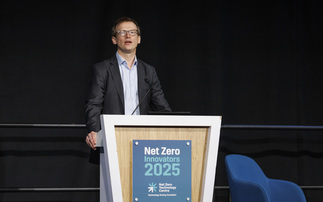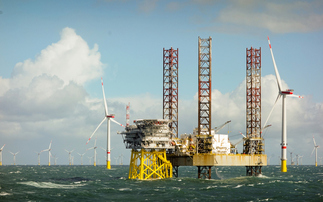Beyond all the talk of Green New Deals and climate emergencies, corporate engagement sustainability efforts are quietly moving up a gear
For the past few months the news impacting the green economy has been dominated by big-picture discussions about the long term challenges the sector has to navigate over the next few tumultuous decades. School strikes, Green New Deals, Greta Thunberg, Extinction Rebellion, Net Zero transitions, AOC, carbon bubbles, and climate emergencies have elbowed their way into the political and corporate mainstream, sparking a clamour of crucial debates in the process.
This is important and long overdue stuff, which savvy businesses need to keep abreast of. The way these debates play out over the coming few years will determine whether or not we engineer a step change in the rate of decarbonisation compatible with the Paris Agreement or not. They will inform where companies should invest and how quickly, as well as how severe climate risks will become.
But it is equally important to keep track of developments at the coal face (so to speak) of corporate sustainability. One of the reasons the current spike of public interest in climate action feels like more than a flash in the pan is that it is quietly being accompanied by a flurry of serious corporate decarbonisation strategies, many of which are backed by proper cash and the kind of board-level backing that the first and second generation of Blue Chip sustainability strategies never attracted.
These stories are now coming through so thick and fast that some days we struggle to cover them all, but this week has provided two particularly pertinent examples from opposite ends of the corporate spectrum.
First up, one of the world's most recognisable consumer brands, Starbucks, announced the successful issuance of a $1bn sustainability bond. The funds raised have been earmarked to drastically improve the energy, water, and carbon efficiency of 10,000 of its outlets and support work in its supply chain to produce more sustainable and climate resilient coffee. The bond issue was oversubscribed.
And then one of those giant companies you have never heard of, cement manufacturer Heidelberg, pledged to bring its emissions in line with the Paris Agreement as part of a drive to engineer carbon neutral cement by 2050. The target is a first for a hugely carbon intensive industry that will require some serious innovation if it is to carve out a sustainable position in a net zero emission world.
Taken in conjunction with Daimler's announcement this week (Daimler!) that it is aiming to be carbon neutral within 20 years, these stories provide further evidence that away from the crucial debates about civilisation-level crises and the urgent need to build a 21st century economy, a serious change is underway at many of the world's most influential companies.
Will this change come fast enough? Well, that's a big picture question.
A version of this article originally appeared in the BusinessGreen Overnight Briefing, available for free to BusinessGreen subscribers.









